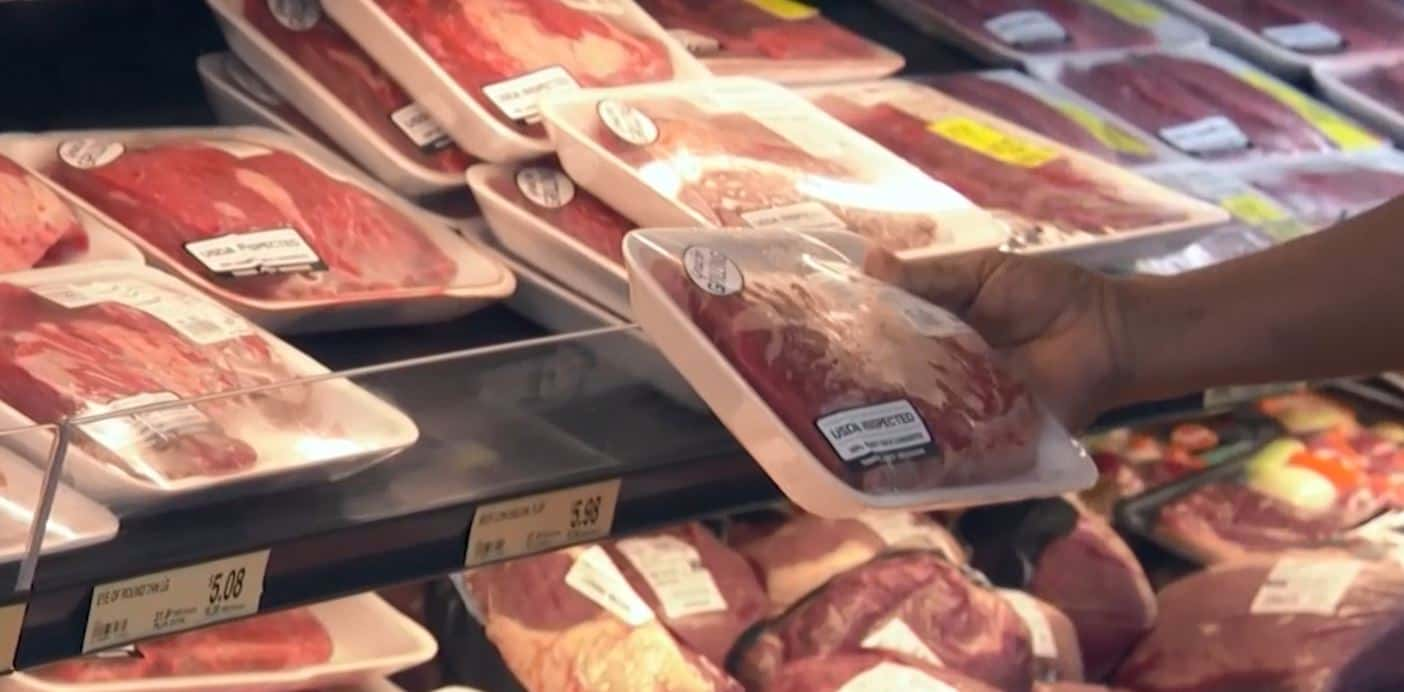The Food Industry Association and the Foundation for Meat and Poultry Research and Education, the foundation for the North American Meat Institute (Meat Institute), released their 15th-annual in-depth study of meat and poultry through shoppers’ eyes. The study explores consumption trends, sales growth and consumer preferences and found demand for meat is accelerating with $50.5 billion in sales for 2019.
The survey looked at consumer interest in topics like production claims and sustainability. With 49% believing that animal agriculture does not have negative impacts on the planet if done properly, the belief that it does have negative impacts is higher among younger generations, showing the opportunity and importance of consumer education.
Meat department sales are strong in dollars and volume, driven by beef and chicken, and spending per household increased. When it comes to meat consumption, moderation is far more popular than elimination, with flexitarians (12%) looking to reduce their animal protein through smaller portion sizes and/or a day without meat.
FMI Vice President, Fresh Foods, Rick Stein noted how meat-shopper consumption patterns are shifting. He said, “One of the most compelling storylines in the analysis is that 83% of shoppers purchase specific cuts of meat and they are eating smaller portions, but with total volume sales up slightly, that means they are eating less more often.”
The top 10 findings of the Power of Meat 2020 survey include:
- Meat and poultry sales grew 1.0% over 2019 to $50.4B.
Meat department sales are accelerating in dollars and volume, driven by beef and chicken. However, a focus on smaller portions and limiting second helpings may pressure volume gains.
- Plant-based meat alternatives are a small but growing market.
Total store plant-based meat alternative sales were $760 million in 2019 and grew 11.8%. They are mostly an occasional choice driven by perceived health benefits, being a good source of protein, just something different and environmental reasons.
- Time-saving solutions drive meat and cooking appliance choices.
While the number of weekly home-cooked meals dropped to 4.5 over 2019, dinners containing animal protein increased to 3.9. Newer cooking appliances, including the Instant Pot and air fryer, continue to make inroads in both ownership and being used to prepare meat.
- Influenced by healthy and ethical living, production claims remain popular.
Meat labeled organic, grass-fed and no-antibiotics-ever saw robust sales gains, but overall trust in such claims is only moderate.
- Promotional ads remain relevant but there is increased focus on in-store communication.
In-store promotional signage remains the top way to check meat and poultry specials.
- Eighty-five percent of shoppers buy just a handful of cuts and kinds of meat and poultry.
Gen Z and millennials are three times more likely than boomers to express doubt in their ability to cook new cuts and kinds of meat.
- Supermarkets remain meat powerhouses with some gains in online meat sales.
More than half of shoppers primarily buy meat and poultry at supermarkets. Forty percent of shoppers have ordered groceries and 19% meat and poultry online, up from 14% last year. Processed meat, chicken and ground beef are the most likely meat items in online baskets.
- Brands continued to benefit from being a preferred purchase among younger shoppers.
2019 was a strong year for private brands. Shoppers want to hear from brands about nutrition, food safety practices, animal care practices and the brand’s environmental impact.
- 68% percent of shoppers feel it is important for grocery stores to provide transparency into how and where livestock were raised.
Shoppers most want to see information on-pack, followed by a brand’s website or social media.
- Sustainability concerns impact meat and poultry choices, but 49% believe, if done properly, animal agriculture does not have negative impacts on the planet.
Environmental sustainability is affecting protein choices. While 34% of consumers believe raising livestock has some or a lot of negative impact on the planet, this belief is much stronger among younger generations. The industry has an opportunity to improve the availability of unbiased environmental impact information to educate on steps taken to protect the planet.



I want US raised and packaged on every meat I buy, sorry I dont trust Brazil or China or many other country’s to adhere to the standards required of US production. As far as fake meat I want it labeled in everything it is in including fast food. From what I can read on it it, it contains many things much worse for you than beef.